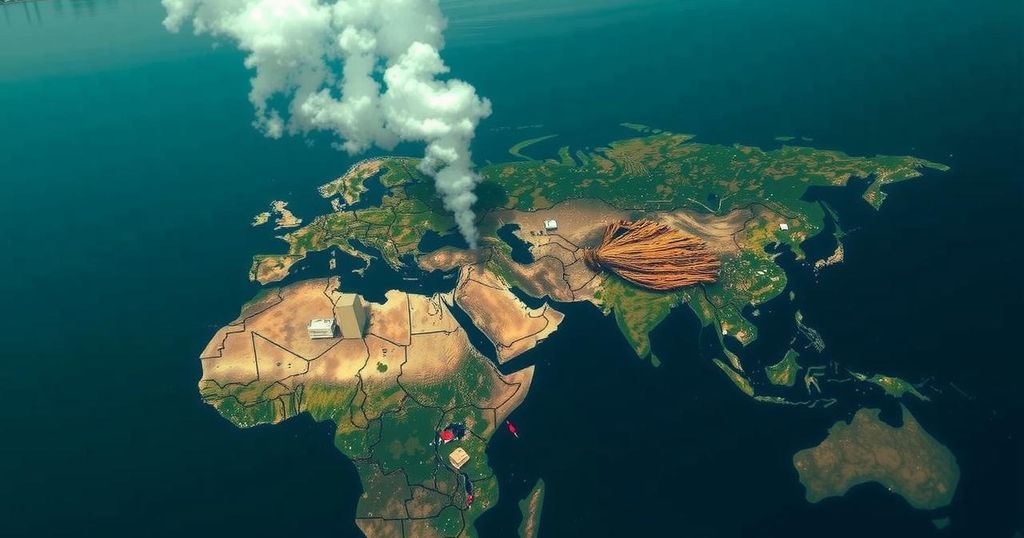UN Reports Climate Change Worsening Global Refugee Crisis

The UN has reported that climate change is contributing to record levels of displacement globally, exacerbating already dire conditions for refugees and internally displaced persons. Rising temperatures, extreme weather, and ongoing conflicts are creating emergencies with increasing frequency. The UNHCR urges increased investment in climate adaptation to support these vulnerable populations and prevent further displacement in the future.
The United Nations has reported a concerning trend regarding climate change and its significant impact on the global refugee situation. Rising temperatures and extreme weather events are exacerbating the plight of individuals displaced by conflict and environmental disasters. In a recent report, the UN refugee agency emphasized that these climate shocks are particularly severe in regions such as Sudan, Somalia, and Myanmar, often compounding existing conflicts and leading to heightened vulnerability among displaced populations. UNHCR chief Filippo Grandi noted, “People forced to flee their homes are on the front lines of this crisis,” underscoring that 75 percent of displaced persons reside in regions highly susceptible to climate-related hazards. This situation is expected to deteriorate substantially, as a record 120 million individuals are currently displaced due to war, violence, and persecution, with numbers increasing over the past decade. According to Andrew Harper, UNHCR’s special advisor on climate action, weather-related disasters have displaced approximately 220 million individuals within their own countries over the past ten years, averaging 60,000 displacements daily. He expressed concern over the lack of financial resources available to support both the displaced and the communities accommodating them, stating, “We are seeing across the board, a hellish situation become even tougher.” The report predicts that by 2040, the number of countries experiencing extreme climate-related hazards will surge from three to 65, most of which will host displaced populations. Furthermore, by 2050, refugee camps are expected to endure double the number of dangerous heat days compared to current levels, presenting severe risks to health and food security. In light of these challenges, UNHCR urges policymakers at the COP29 summit in Baku to prioritize climate financing for refugees and their host communities. Currently, adaptation funding for fragile states averages only $2 per person per year, starkly contrasting with $161 per person in more stable regions. Harper warns of the inevitable increase in displacement if adequate investments in climate resilience are not made, stating, “If we don’t invest in peace, if we don’t invest in climate adaptation in these areas, then people will move.”
The article addresses the interplay between climate change and the rising number of refugees and internally displaced persons globally. As climate conditions deteriorate, particularly due to extreme weather patterns and increasing temperatures, vulnerable populations are being disproportionately affected. The UN refugee agency is emphasizing the need for enhanced investment to mitigate these challenges, particularly in lower-income countries where displaced individuals typically seek refuge. The report highlights current displacement statistics and anticipates worsening conditions if proactive measures are not implemented by the international community.
In conclusion, the worsening climate crisis is profoundly impacting global displacement patterns, placing individuals at greater risk as they navigate the dual challenges of conflict and environmental instability. The urgency of substantial investment in climate resilience initiatives for refugees and host communities cannot be overstated. Without immediate action, the human cost will continue to rise, resulting in more significant humanitarian crises associated with mass displacements. The international community must prioritize these issues, particularly in vulnerable regions, to avert a humanitarian catastrophe.
Original Source: www.latintimes.com






